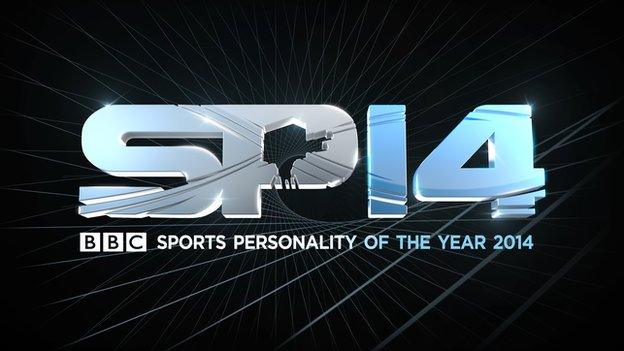BBC Sports Personality: Prince Harry presents Invictus award
- Published
Invictus Games competitors win Rollason award
Prince Harry presented Invictus Games competitors with the Helen Rollason Award at the BBC Sports Personality of the Year show.
The award went to those who took part in the international event for injured, wounded and sick servicemen and women.
More than 30 competitors took to the stage in front of a crowd of 12,000 people at Glasgow's SSE Hydro arena.
The Helen Rollason Award is presented in memory of the BBC presenter who died of cancer aged 43 in 1999.
It is awarded for outstanding achievement in the face of adversity.
Recent Helen Rollason Award winners | |
|---|---|
2013: Anne Williams (Hillsborough campaigner) | 2012: Martine Wright (sitting volleyball) |
2011: Bob Champion (horse racing) | 2010: Frank Williams (Formula 1) |
2009: Major Phil Packer (charity fundraiser) | 2008: Alastair Hignell (cricket & rugby union) |
Prince Harry founded the Invictus Games, which brought together more than 400 competitors from 13 nations in London, following a visit to the Warrior Games in Colorado last year.
"I'm like a proud dad," said Prince Harry.
"These men and women will no longer be defined by their injuries. Their stories move, humble and captivate us.
"We should not underestimate the power of sport, that changes life. All of those who complete in the Invictus Games have achieved so much just to make it to the starting line-up."
Dave Henson, captain of the UK team, accepted the award on behalf of those who took part in the London event.
"To use the phrase 'blown away' is inappropriate but we were," the 30-year-old said.
Games organiser Prince Harry urged the crowd to create a Mexican wave at the closing ceremony
"We expected Aldershot but we were given the Olympic Stadium. It's absolutely overwhelming.
"To be recognised formally with the Helen Rollason Award is the icing on the cake of our Invictus Games adventure."
Competitions took place across nine disciplines: athletics, swimming, powerlifting, indoor rowing, sitting volleyball, road cycling, wheelchair basketball, wheelchair rugby and archery.
Members of the team who served with Britain's forces talked about how sport and the Invictus Games experience helped their recovery after suffering serious injuries.
"When I'm running, I feel free. I don't feel disabled, I feel normal, I feel like I used to feel," said Henson, from the Royal Engineers, who lost his legs in an explosion.
"I love the freedom. Invictus is unconquered, it's what we stand for. We go through recovery as a team, we will get ourselves through it as a team like we used to."
Corporal Paul Vice, 31, tried wheelchair tennis, swimming and athletics before deciding sitting volleyball, cycling and archery suited him.
Invictus Games in numbers | |
|---|---|
Four days of competition | A 130-strong British team |
More than 400 competitors | 13 countries represented |
Royal Marine Vice suffered 400 significant wounds down his left side along with other injuries after being seriously injured in an explosion in 2011.
"It doesn't matter if you can run the 100 metres in 12 seconds or 25 seconds - the guys that run it in 25 seconds were told they'd never walk again," he said.
Barbara Slater, director of BBC Sport, said: "Their achievements this year at the Invictus Games have been inspirational and they all deserve to be recognised with the Helen Rollason Award."
The Invictus Games were organised with the support and backing of The Royal Foundation of The Duke and Duchess of Cambridge and Prince Harry and the Ministry of Defence.
The bidding process for the next Invictus Games in spring 2016 and summer 2017 is now under way.
- Published14 December 2014
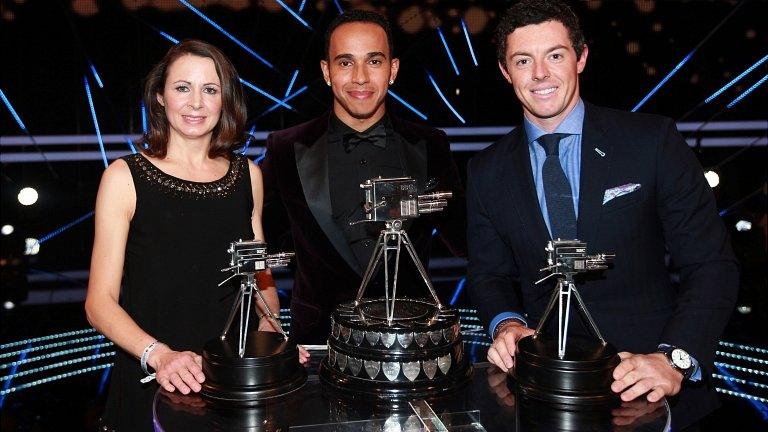
- Attribution
- Published15 September 2014
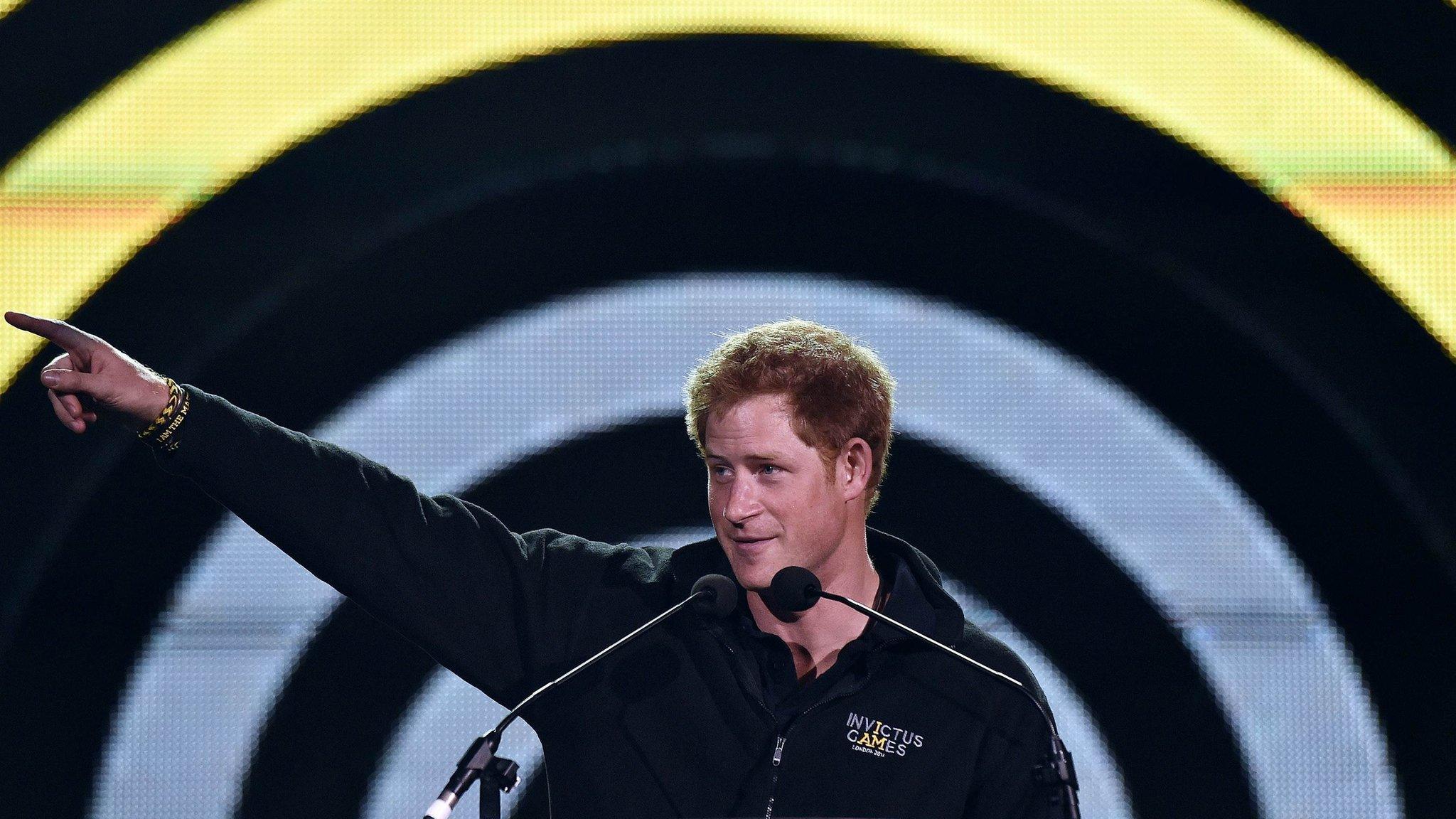
- Attribution
- Published10 September 2014
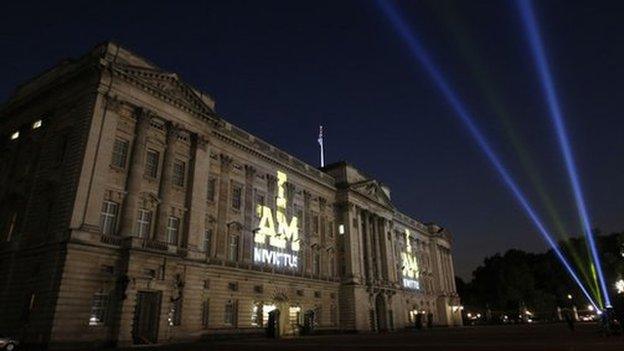
- Attribution
- Published10 September 2014
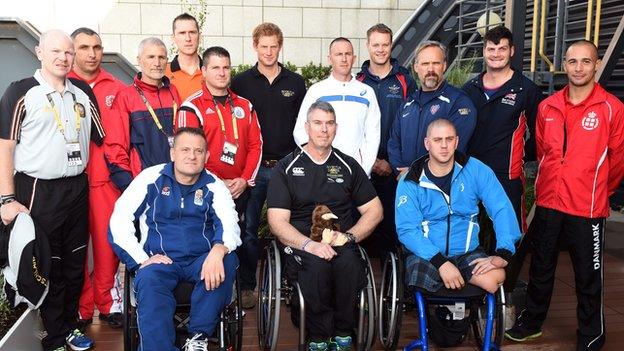
- Published20 October 2014
